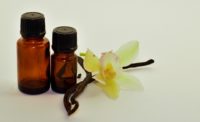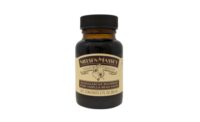Madagascar vanilla crops this year are of higher quality and similar in size to recent years but prices remain difficult to predict, Nielsen-Massey Vanillas concluded its its recent crop report.
The Waukegan, Ill.-based company’s leadership team recently visited Madagascar to assess this year’s vanilla crop, meet with suppliers and establish relationships with the goal of strengthening the supply chain.
In the report, Craig Nielsen, v.p. of sustainability, said the enhanced crop quality and size — projected to reach between 1,400 and 1,600 tons — can be attributed to stronger enforcement of mandatory government picking dates and improved harvesting practices.
One important area of progress, Nielsen notes, is greater coordination between the government and farmers to protect the security of vanilla beans in the field. Police and collectors’ organizations have established checkpoints and confiscated stolen green beans, which appears to have deterred theft.
“Most of the beans we saw were light green or yellow and split, as opposed to very dark green,” Nielsen wrote. “This indicates they are fully mature and contain the complete range of complex flavor compounds that make pure natural vanilla the world’s most popular flavor.”
Initial listed prices for green beans were high, Nielsen said, but offers were few, as large industrial purchasers have been waiting for greater clarity before purchasing. Nielsen hopes to have price projections in a couple months, but the company says ample supplies of high-quality vanilla should be available.
Sustainability efforts
Over the past two years, Nielsen-Massey has strengthened its commitment to corporate sustainability. Established earlier this year, Nielsen-Massey’s formal sustainability plan focuses on assisting vanilla farmers in Madagascar and reviewing the environmental impact of its operations. It’s set to build on the company’s work in response to the devastation wrought by Cyclone Enawo, which struck Madagascar in 2017.
Nielsen-Massey worked with CARE to provide 3,000 households with vanilla vines, to replace those lost to the cyclone, and vegetable seeds, to help promote food security. The company also worked with a supplier to give all 41 vanilla farmers from the village of Andranovato 500 new vanilla vines each, as well as raincoats, boots and flashlights, to help them protect their valuable crop from theft.
Ugandan vanilla
As Nielsen-Massey continues to diversify its vanilla bean supply, Uganda has become a market with significant potential. Earlier in the summer, as part of a delegation from the Sustainable Vanilla Initiative, the company attended meetings with government officials. Nielsen-Massey representatives intend to return.
The quality of Ugandan vanilla is on par with Madagascar, and Nielsen-Massey sees it as an “attractive” source of high-quality vanilla for manufacturers and chefs seeking premium vanilla flavor.




